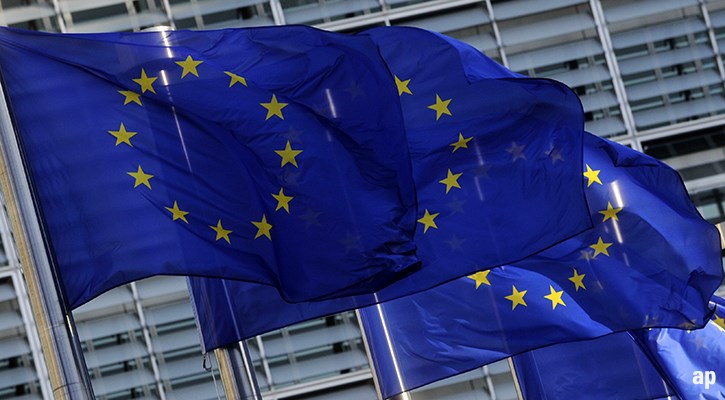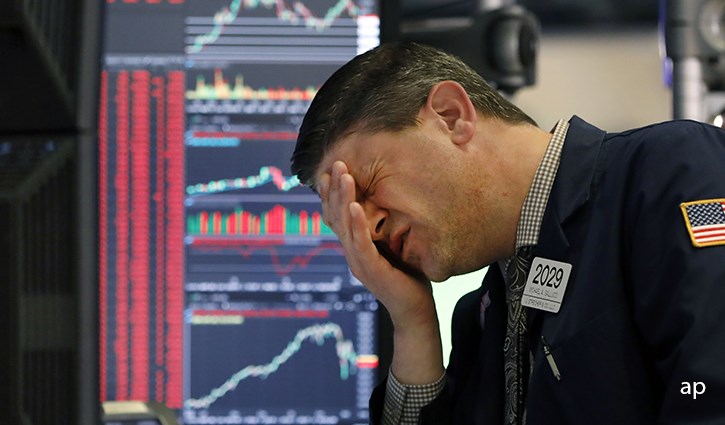
It’s been five years since the Brexit vote transformed the UK’s political and economic landscape. Since then the UK has left the European Union, and had to contend with the impact of a global pandemic, the end of which is still uncertain. Both events had a dramatic but shortlived impact on the UK stock market, sending both shares and sterling plunging. But stocks have rebounded after initial sell-offs. We look at the 10 best and worst performing UK shares and funds covered by Morningstar since that fateful day in 2016.
How Stocks Have Performed Since Brexit
Online grocery delivery firm Ocado (OCDO) is the clear winner in the five years since the referendum, with a gain of nearly 600%. The firm was one of the big winners from lockdown, but had already started to build momentum before last year’s disruptions to our shopping habits.
Ocado was the best-performing stock on the FTSE 100 in 2018, rising 98%. The stock has found life rather harder this year, falling back around 15% as British consumers rediscover restaurants following the lifting of lockdown restrictions. But eve after such a strong multi-year gain, the shares are still fairly valued, according to Morningstar analyst Ioannis Pontikis, making Ocado a 3-star stock. Pontikis says that while Ocado does not yet have an economic moat, it is heading in the right direction because of innovative technology platform.
“From its humble beginnings as one of the first niche online grocers to its current status as a technology powerhouse and online retail disrupter, Ocado Group offers unique exposure in one of retail's largest and most dynamic segments: global online food retailing,” he says.
Best and Worst Performing Stocks Since Brexit
The commodity boom has helped propel miners to the top 10, with Anglo American (AAL) shares up fivefold since 2016.
Away from Morningstar rated stocks, some FTSE 250 companies have produced staggering returns including hobby stock Games Workshop (GAW) and magazine publishing company Future (FUTR), which have risen around 3,000% and 2,400% respectively. Both benefited from lockdown trends last year, but have a multi-year track record of rising profits and revenues.
British Gas-owner Centrica (CNA) is the worst performer since 2016 among the stocks Morningstar rates, with a loss of 65%. Running a UK residential energy business alongside an oil and gas exploration arm has been a tough combination in the last few years. The oil price (briefly) went negative last year as energy consumption collapsed and Centrica’s share price slumped 47% in 2020, its worst annual performance since the Brexit vote. Regulator Ofgem brought in a price cap for electricity and gas companies because it thought suppliers had been overcharging customers for many years. The company even faced nationalisation under a Corbyn Government. Despite the slump, Centrica’s shares are fairly valued around the 50p mark, according to Morningstar energy analyst Tancrede Fulop.
The effect of the pandemic is also visible among the worst performing stocks, with British Airways owner IAG (IAG) in the number two slot, down more than 50% and cruise operator Carnival (CCL) also in the bottom 10.
How Funds Have Performed Since Brexit
2020 was a transformational year for many tech-focused funds, particularly those invested in Tesla (TSLA). This partly explains why Silver-rated Baillie Gifford Global Discovery is the top perfoming rated fund since 2016 with a gain of 220%, ahead of Bronze-rated JPM Asia Growth, up 164%.
The Baillie Gifford fund’s top two holdings are Tesla and Ocado, the best performing stock in this period, with weightings of around 4% for each holding. According to Morningstar Direct data, the stocks were first bought in 2013 and 2012, way ahead of the boom periods for both companies.
Best and Worst Performing Rated Funds Since Brexit
JPM Asia Growth has benefited from China’s growth before Covid-10 and its rapid recovery from the pandemic. The fund’s co-manager Joanna Kwok has recently explained why she thinks rising incomes in Asia will be one of the best investment opportunities of this decade.
Just two rated funds are in negative territory over the period: Neutral-rated Invesco Global Targeted Returns and Silver-rated Templeton Global Total Return Bond Fund, down 3% and 6% respectively. Morningstar analyst Francesco Paganelli notes that the Invesco fund has experienced “a prolonged period of outflows and disappointing performance”, and that manager David Millar is to step back from the Invesco Global Targeted Return straregy in September 2021. It is not the only absolute return fund in the bottom performers list and we have previously looked at how often absolute return funds outperform.
The Templeton fund is in the Morningstar Global Flexible Bond Category, and has underperformed its peers in three of the last four calendar years. Still, Morningstar analyst Patrick Ge retains a Silver Analyst Rating on the fund. He says recent exposure to emerging market bonds such as Brazil and Argentina have hurt performance over the short term. “While this recent stretch has been disappointing, the manager’s patience and knack for finding value should continue to pay off over the long term,” Ge says.
Performance Since Brexit
So what conclusions can we draw from this data? Despite these shocks to the financial system, UK shares are overall higher than they were five years ago. It's been a great period for equities, especially tech stocks, less so for government bonds and absolute return funds.
The FTSE 100 is up 15% since the Brexit vote, with annualised gains of nearly 3%, which is not amazing, but is perhaps reasonable in the context of the external backdrop. Many shares and funds have beaten the index by a significant amount, and it's clear that funds have been much less volatile than shares: even five of the worst performing funds managed to perform roughly in line with the index. Stocks can, and often do, fall 100%, whereas this is much less likely for funds, which tend to spread their risks more evenly.
- A note on methodology: we have screened out stocks from the Alternative Investment Market (Aim) because they are by their nature more volatile. For example, Aim-listed miner Greatland Gold (GGP) has gained around 7,000% since 2016, but plenty of others have fallen by the wayside and have delisted in the period, effectively losing investors 100% of their money. We’ve also taken into account dividend income, so performance figures are on a total return basis





























